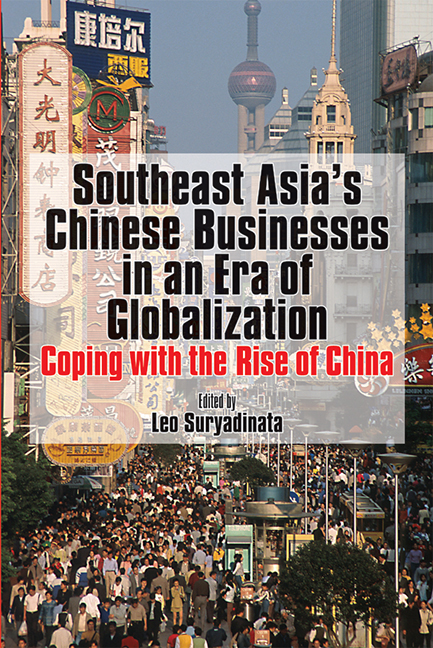12 - The Changing Dynamics of Thailand CP Group's International Expansion
from Singapore and Thailand
Published online by Cambridge University Press: 21 October 2015
Summary
The Charoen Pokphand (CP) Group of Thailand had been one of the most studied Thai firms both in the vernacular press and the academic circles. Among best-selling books on leading domestic personalities, those on the CP Group's chairman, Dhanin Chearavanont, probably ranked second, only after the prime minister, Thaksin Shinawatra. In the academic literature alike, CP had been the case study favoured by scholars from different fields, ranging from agri-business (for example, Burch and Goss 2005) to business history (for example, Suehiro 1989, 2003).
One stream of academic inquiry that had always featured CP as its main case was the study of the “overseas Chinese” capitalism in Southeast Asia. The CP Group had been frequently referred to as one of the major Thai representatives of the “overseas Chinese” business (see, for example, Gomez 2002, 2004; Suehiro 1989, 2003; Brown 1998, 2000; Yeung 2004). CP's characteristics of family ownership and management, large size, conglomerate diversification, and extensive relationships with politicians, made the group fit under the stereotypical model of Chinese capitalism. The myth of CP as an “overseas Chinese” business was further reinforced after the group and the U.S.-based Continental Grain formed the first foreign joint venture in Shenzen Economic Zone in 1979. Since then, China had been the second most important country for the CP Group after Thailand. Of all the group's 400 subsidiaries worldwide, 213 were located in China (www.cpgroup.cn, July 2005).
The over-emphasis on the ethnicity of CP's founder might have divested some attention from the group's business operations. CP had been regarded more as the Thai face of the “overseas Chinese” capitalism than as a regular business corporation. As a result, most studies overwhelmingly stressed how CP's characteristics resembled other ethnic Chinese businesses throughout Southeast Asia, rather than unveiled the group's behaviour from an economic or business perspective. The weight given to the group's Chinese ethnicity was further emphasized following the group's extensive expansions in China.
- Type
- Chapter
- Information
- Southeast Asia's Chinese Businesses in an Era of GlobalizationCoping with the Rise of China, pp. 321 - 364Publisher: ISEAS–Yusof Ishak InstitutePrint publication year: 2006



